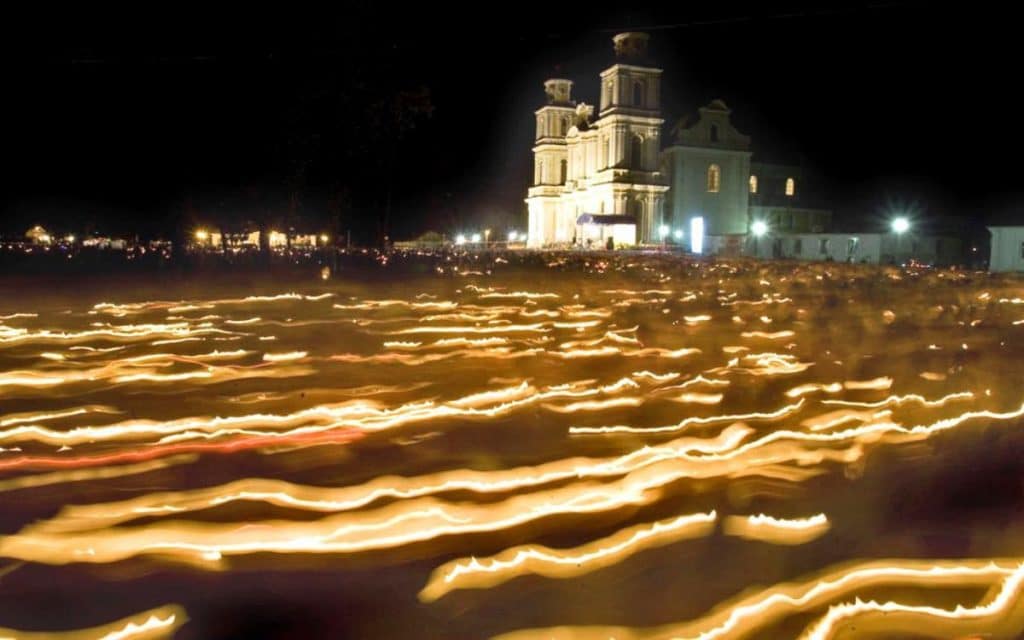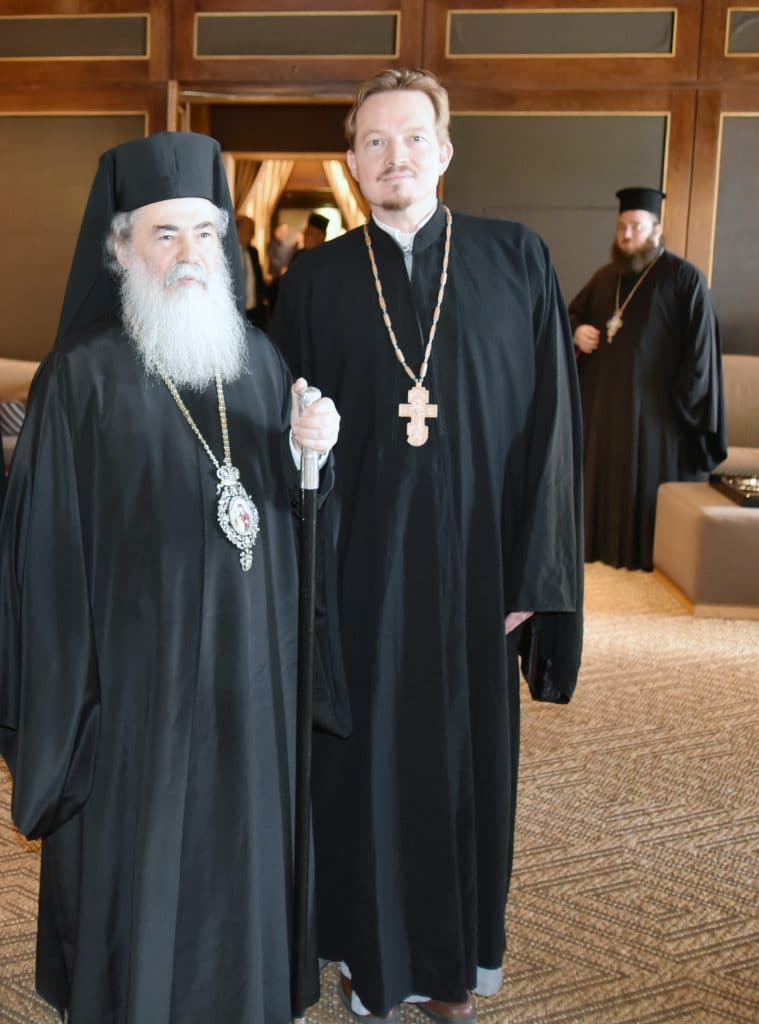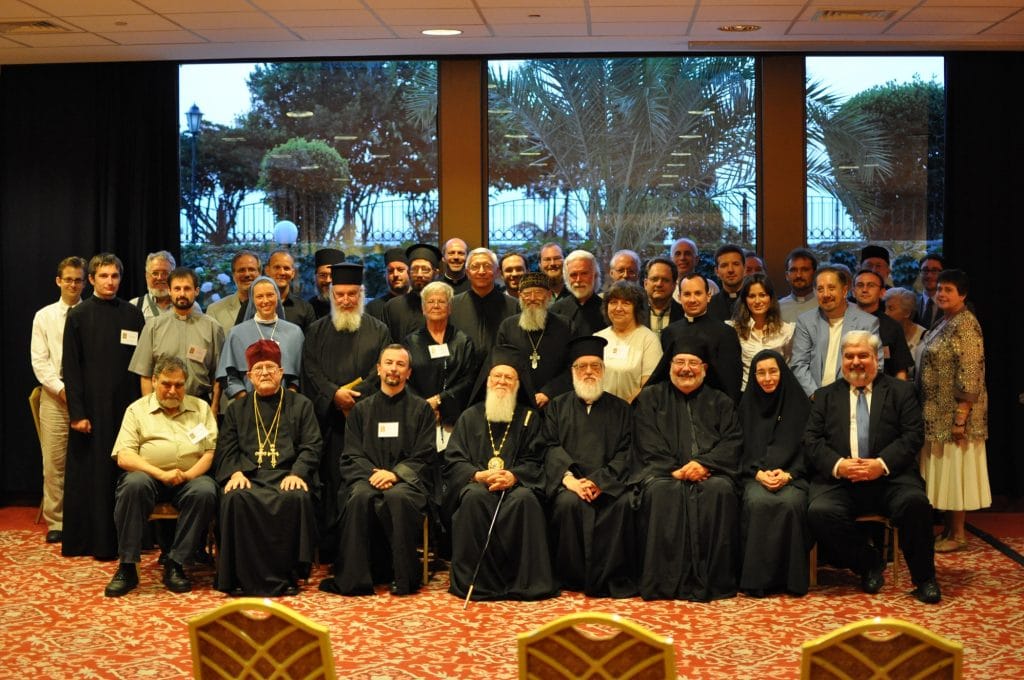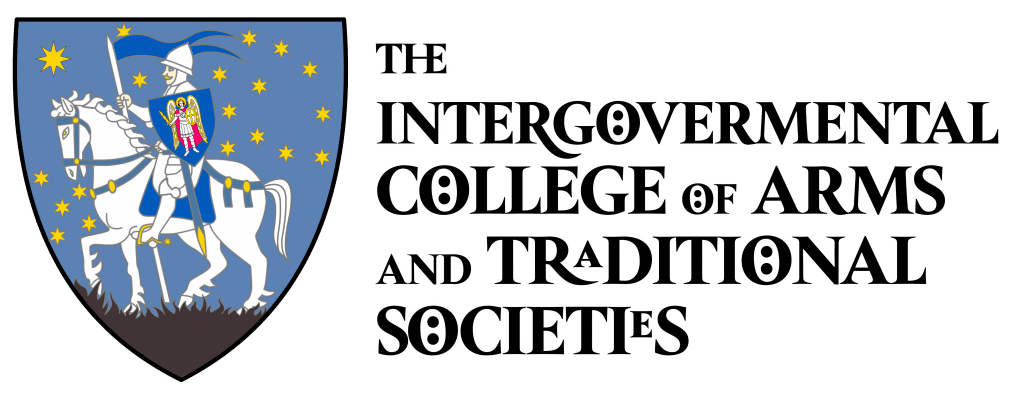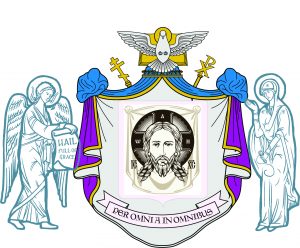Commonly referred to as “The Order” (among members) or OSJC (for short, without the E), the Order of Saint John Chrysostom’s full and legal name is “The Ecclesiastical Order of St John Chrysostom.”

Its primary aim is to glorify God in Trinity; God the Father as ultimate source and cause, through Jesus Christ who is “True God from true God and Light from Light” and the “image/icon of the invisible God” (Colossians 1:15), through the Holy Spirit.
For the Order and its Members, this is inseparable from (1) the clear proclamation of the Gospel, (2) emphasis on the divine and apostolic importance of the Church as “pillar and ground of truth,” (3) praying for the “well-being of the holy churches of God and the unity of all” (Great Litany) and actively working for the well-being and unity of these apostolic churches, (4) remembering “orphans and widows” (the poor) in their tribulations and (5) helping bring forth a new generation of Christian families including clergy and monastics.
The Order may be considered “sovereign” because it is not under the direct authority or control of any ecclesiastical, private or governmental authority, having received its initial status under international law under treaty-authority from EUCLID (“Charter of Authorization”), but it is properly only called “Ecclesiastical” because working under the blessing, guidance and canonical obedience to the sponsoring bishops and archbishops of the Catholic and Orthodox Churches.
What the OSJC “is not:”
The Order is not:
- a purely Catholic order or purely Orthodox order
- in any way connected to Freemasonry or other secret societies
- an ecumenical order with the aim to “merge” the Orthodox and Catholic Churches
- an order of knighthood or nobility focused on titles and status, or on glorifying men
- involved or focused on international politics
- a “revived medieval” order of any kind.
What the OSJC “is:”
The Order is:
- an association of Orthodox and Catholic Christians, clergy and laity, working with a common dedication to the Gospel
- an educational institute that aims to support clergy, notably preaching presbyters, in the mastery of public preaching in the spirit of Saint John Chrysostom
- an educational institute that aims to support parents, especially fathers, who seek to “raise a modern-day knight”
- supported by an intergovernmental organization as well as hierarchs (bishops) and priests of the Orthodox and Catholic Churches
- committed to being faithful to the teaching of Jesus Christ and the legacy of St John Chrysostom.


